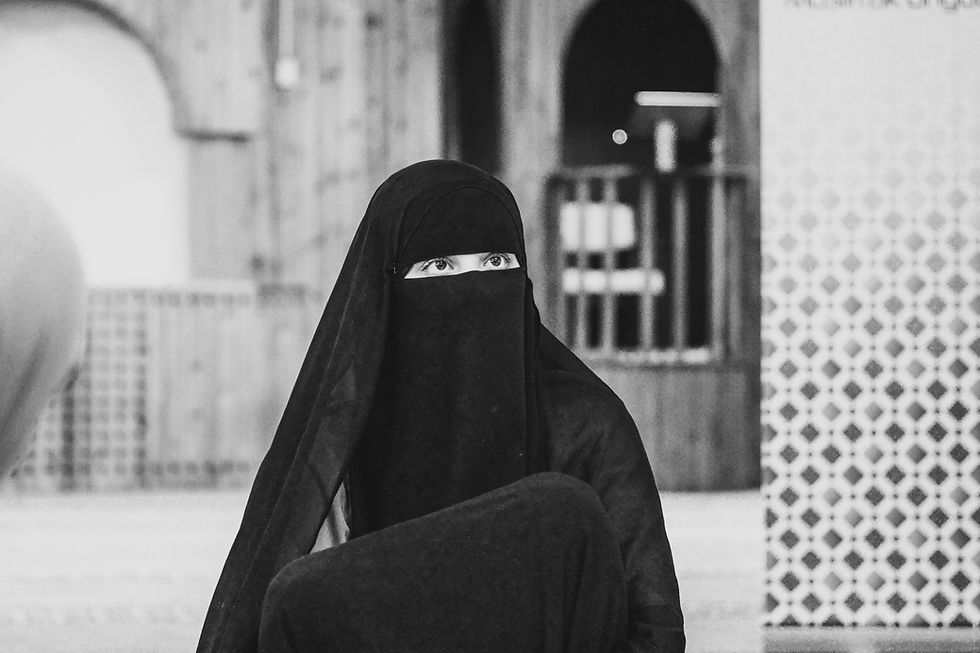'Life is finished' as Taliban force women out of sight
- Christopher Kremmer

- May 10, 2021
- 4 min read
AFGHANISTAN
7 June 1997
by Christopher Kremmer, Sydney Morning Herald correspondent in Mazar-e Sharif

The Taliban briefly occupied the northern Afghan city of Mazar-e Sharif last month before being repelled by opposition forces. Their first target was women - but several courageous ones spoke to the Herald's CHRISTOPHER KREMMER .
ZHOLA Najrabi lives on Prison Street, an address which began to seem ominously appropriate when the Taliban came to town.
Zhola, 21, was four months short of completing her degree in English when the Islamic extremists banned women from universities and schools.
She would be confined to home, unable to study or work in the community, and banned from direct contact with men outside the family. "Everything is finished. Life is finished," she said, sadness flashing across her bright eyes. "I'd rather leave the country, although I love my country."
Zhola's predicament was shared by thousands of women in this northern capital, after a deal between the Taliban and a northern general, Abdul Malik, brought 5,000 Taliban fighters to Mazar-e Sharif. Two days later, after the deal fell apart on May 27 and hundreds of Talibs were slaughtered on the streets, the women of northern Afghanistan were savouring their reprieve.
No sooner had the Talibs arrived than new regulations began to be announced from the loudspeakers at Mazar's main mosque.
Rule One was that all women must wear the chadderi, a tent-like veil covering the wearer from head to toe.
Zhola, a student of Balkh University, defied the rule by meeting me, unveiled, in her home.
She is a vivacious, green-eyed young woman with an engaging, crooked smile. She wears her auburn hair in a pony tail, and her fingers are long and delicate and tipped with nail polish.
Rule Two - which forbade women and girls from educational institutions - could not be broken so easily.
"To stay at home means to die," says Zhola. "I wanted to be a good translator, but unfortunately I have to be a good housewife."
Even her favourite pastime - watching Hindi movies from India on satellite TV - had been denied her. The Najrabis, knowing the Taliban's views on television, had buried their cheap, locally-made satellite dish.
Zhola's family are ethnic Tajiks, refugees from the fighting in Kabul which began after the mujahideen took the city from the Communist-backed President Najibullah in 1992. Cheap kilims, not rich carpets, cover the earthen floors of their mud-brick home. The family's few possessions are packed in jute bags, waiting for the highway to reopen so they can once again hit the road as refugees.
Afghanistan is a country where women are still killed as witches, and where people bury their hair and nail clippings lest they are used against them in voodoo.
A girl who elopes risks being half-buried in the ground while her father or guardian shoots or stones her to death.
Ever since 1929, when King Amanullah abolished purdah and established co-educational schools, Afghanistan has been a smouldering fuse of reaction, caught between the stern dictates of the village mullah and modernising governments in Kabul.
Yet the Taliban's policies are unique in the region. In the neighbouring former Soviet republics of Central Asia, 82 per cent of women have had at least 10 years in school.
In neighbouring Pakistan, another Muslim country, women participate freely in the workplace and in schools.
But with the destruction brought by Afghanistan's civil war has come a belief in scorched-earth social policies as the key to national salvation.
Such is the war weariness that many Afghans are willing to comply. Nasreen, 17, was close to finishing Year 12 when her school was closed. She met me in the courtyard of the family home, a stone's throw from Mazar-e Sharif's blue-tiled Shrine of Hazrat Ali, where that morning the new regulations on women had been announced.
"Why should a boy who has lower grades than me get a place in university?" she asked.
But when her father - a shopkeeper who sells make-up - hears I'm talking to his daughter, he orders her out of the room and tells me I have endangered his family.
Nasreen has disappeared, swiftly and silently. She will be expected to do this her whole life if the Taliban win.
Rule Three was that women should not go to work. Like all the rules, it had been imposed in Kabul when the Taliban took the capital last September.
Zhola's aunt had been working as a teacher in Kabul at the time, performing the role of main breadwinner for her husband and six children. Now she is confined to the home, and the family goes hungry.
ON the streets of Kabul the religious police beat women who continue to work for foreign aid agencies. Five staffers of CARE International were beaten last month.
Maulvi Rafiullah Muazzin, the head of religious police in Kabul, defends the policy on women.
"We are not against progress," he says. "For instance, we are not against rockets going into space, but we are against a man and a woman who are not married sharing the rocket."
It would be wrong to suggest that Mazar was a paradise before the Taliban came. The full veil was already being worn by 90 per cent of women, and two women were serving prison sentences for the crime of leaving their husbands.
Yet women like Surva Baikon, 35, a teacher at Balkh University - where one quarter of the 6,000 students were women - are ready to defend their freedoms.
"I am not afraid of them. If the Taliban come it is possible that all men and women will rise against them," she said before the militia arrived.
In the event, that is exactly what happened.



Comments